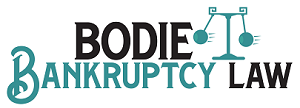The foreclosure crisis has illuminated numerous flaws in the legal system, highlighting issues of fairness and misconduct that undermine the integrity of judicial processes. As the economic downturn of the late 2000s revealed, many homeowners faced unjust treatment, exacerbating the impact of financial hardships. The need for reform in handling foreclosure cases is evident, as current practices often reveal a pattern of systemic failures that disproportionately affect vulnerable populations. Addressing these issues requires a comprehensive approach that not only seeks to correct past wrongs but also establishes safeguards to prevent future injustices.
One of the primary concerns in foreclosure cases is the lack of transparency and accountability within the legal process. Homeowners frequently find themselves pitted against powerful financial institutions with substantial resources and legal expertise. This imbalance can lead to procedural irregularities, such as improper documentation or failure to follow due process, which can unfairly disadvantage individuals facing foreclosure. In many cases, the documentation submitted to courts is found to be inaccurate or incomplete, yet foreclosure proceedings continue unabated. This raises serious questions about the diligence and ethical conduct of those involved in these cases, from lenders to legal representatives.
Additionally, the foreclosure process often lacks sufficient oversight, resulting in potential misconduct and abuse. Instances of “robo-signing,” where documents are signed en masse without proper review, and fraudulent practices in loan servicing highlight the need for stringent regulatory measures. Such practices undermine the credibility of the legal system and contribute to a broader sense of injustice among affected homeowners. The absence of rigorous checks and balances allows these abuses to persist, thereby eroding public trust in the judicial system’s ability to provide fair and impartial resolutions.
The legal system also faces challenges in ensuring consistency and fairness in foreclosure rulings. Variations in judicial practices and interpretations can lead to disparate outcomes for similar cases, creating a lack of predictability and stability. Establishing clearer guidelines and standards for handling foreclosure cases can help reduce inconsistencies and promote fairness. Additionally, increased training for judges and court personnel on foreclosure issues and ethical considerations can contribute to more informed and equitable decision-making.
Addressing these systemic issues requires a multifaceted approach that involves legislative, judicial, and administrative reforms. Legislative measures should focus on enhancing transparency, increasing oversight, and strengthening protections for homeowners. Judicial reforms might include improved training and clearer procedural guidelines to ensure fair treatment across the board. Administrative changes could involve better coordination among regulatory agencies and increased support for legal aid organizations.
Ultimately, reforming the legal system to address fairness and misconduct in foreclosure cases is not only a matter of rectifying past errors but also of preventing future injustices. By implementing comprehensive reforms that enhance transparency, accountability, and access to legal representation, the legal system can better serve the needs of all individuals and restore public trust in its capacity to deliver justice. These changes are essential to ensuring that the foreclosure process is conducted with integrity and respect for the rights of all parties involved, fostering a more equitable and just society.

